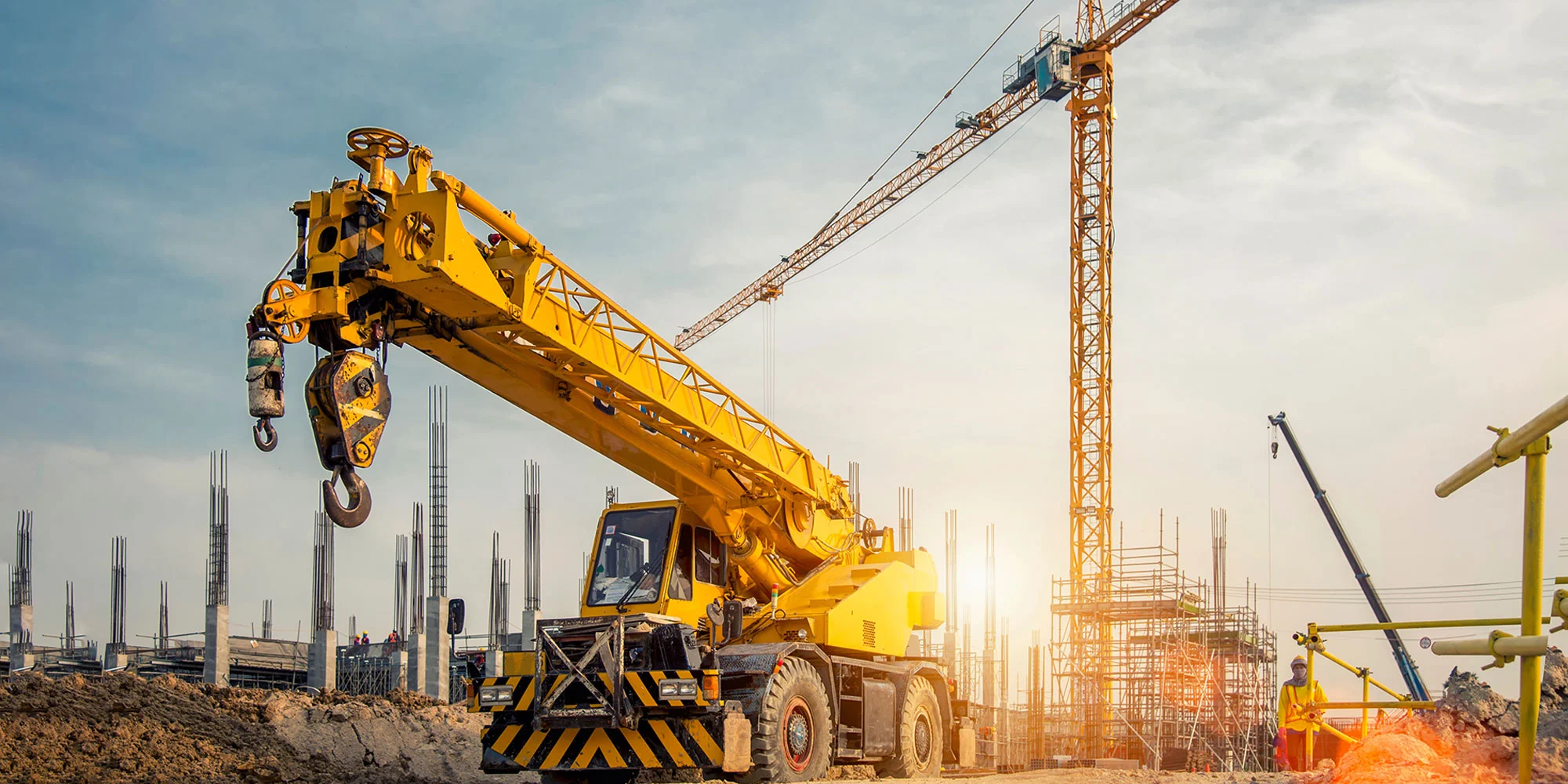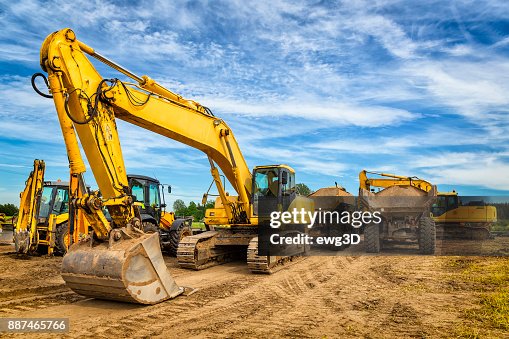Heavy Equipment Rental in Tuscaloosa AL: Find the Right Equipment for Any Kind Of Project
Heavy Equipment Rental in Tuscaloosa AL: Find the Right Equipment for Any Kind Of Project
Blog Article
Exploring the Financial Conveniences of Leasing Building And Construction Devices Compared to Possessing It Long-Term
The choice between possessing and renting building and construction devices is crucial for economic management in the sector. Renting deals instant expense savings and functional adaptability, allowing business to designate sources a lot more efficiently. Understanding these nuances is vital, specifically when taking into consideration how they straighten with particular project needs and monetary methods.

Cost Comparison: Renting Vs. Possessing
When examining the economic ramifications of leasing versus having building and construction equipment, a complete price comparison is important for making educated decisions. The selection between renting out and possessing can substantially influence a firm's bottom line, and recognizing the linked prices is important.
Leasing construction tools generally includes reduced ahead of time costs, enabling companies to assign funding to various other functional needs. Rental agreements frequently consist of adaptable terms, allowing companies to accessibility advanced equipment without long-term commitments. This adaptability can be especially useful for short-term tasks or fluctuating work. Nonetheless, rental expenses can build up gradually, potentially exceeding the expenditure of ownership if tools is needed for an extended duration.
On the other hand, possessing building tools needs a significant preliminary investment, in addition to ongoing costs such as depreciation, insurance coverage, and financing. While ownership can bring about long-lasting financial savings, it also locks up resources and may not offer the very same level of adaptability as leasing. In addition, possessing equipment necessitates a dedication to its application, which might not constantly straighten with job demands.
Eventually, the choice to rent or possess ought to be based on an extensive evaluation of particular task requirements, economic ability, and lasting tactical goals.

Upkeep Expenses and Duties
The option in between leasing and possessing construction devices not only involves economic considerations but likewise encompasses continuous maintenance expenditures and duties. Owning devices calls for a substantial commitment to its maintenance, which consists of regular evaluations, repair work, and potential upgrades. These duties can promptly collect, causing unforeseen expenses that can strain a spending plan.
In contrast, when leasing devices, upkeep is typically the duty of the rental company. This plan permits professionals to prevent the monetary problem connected with wear and tear, in addition to the logistical challenges of organizing repair services. Rental arrangements commonly include arrangements for upkeep, indicating that professionals can concentrate on finishing jobs as opposed to stressing over devices problem.
Additionally, the diverse series of devices offered for lease makes it possible for firms to pick the latest designs with sophisticated modern technology, which can enhance performance and performance - scissor lift rental in Tuscaloosa Al. By going with rentals, companies can stay clear of the lasting liability of equipment devaluation and the associated maintenance frustrations. Ultimately, assessing maintenance expenditures and responsibilities is vital for making a notified choice about whether to own or rent building and construction devices, dramatically impacting general project expenses and operational effectiveness

Depreciation Effect On Possession

A significant factor to consider in the choice to have building devices is the effect of devaluation on overall possession costs. Depreciation stands for the decline in worth of the equipment with time, influenced by aspects such as use, damage, and innovations in modern technology. As equipment ages, its market value reduces, which can considerably impact the find out here now owner's monetary placement when it comes time to trade the equipment or offer.
For construction firms, this devaluation can translate to significant losses if the equipment is not used to its maximum potential or if it lapses. Owners should represent devaluation in their financial projections, which can bring about greater total prices contrasted to leasing. In addition, the tax obligation implications of depreciation can be intricate; while it might offer some tax benefits, these are often balanced out by the fact of minimized resale worth.
Inevitably, the burden of devaluation emphasizes the importance of understanding the long-lasting monetary commitment entailed in possessing building equipment. Companies need to carefully review how frequently they will certainly use the tools and the possible monetary influence of devaluation to make an enlightened decision regarding possession versus leasing.
Economic Adaptability of Renting
Leasing construction tools provides significant monetary versatility, allowing companies to assign resources extra successfully. This adaptability is especially vital in an industry identified by changing project needs and varying workloads. By choosing to rent out, organizations can prevent the considerable funding expense needed for purchasing equipment, maintaining cash circulation for various other functional requirements.
Furthermore, leasing tools enables business to tailor their equipment selections to specific job needs without the long-term commitment related to possession. This suggests that companies can conveniently scale their equipment stock up compacting roller or down based upon awaited and present job requirements. Consequently, this versatility minimizes the threat of over-investment in equipment that might come to be underutilized or out-of-date over navigate to this website time.
Another monetary advantage of leasing is the possibility for tax advantages. Rental settlements are usually taken into consideration overhead, enabling immediate tax obligation deductions, unlike devaluation on owned and operated devices, which is topped numerous years. scissor lift rental in Tuscaloosa Al. This immediate expenditure recognition can better boost a firm's cash position
Long-Term Task Factors To Consider
When evaluating the lasting requirements of a building business, the choice in between renting and having devices ends up being extra complex. Key factors to consider consist of task period, frequency of use, and the nature of upcoming jobs. For jobs with extended timelines, purchasing equipment might appear useful because of the possibility for lower total prices. However, if the devices will not be made use of continually across projects, having might cause underutilization and unnecessary expense on upkeep, insurance coverage, and storage.
The building market is developing rapidly, with new devices offering boosted effectiveness and security functions. This flexibility is especially beneficial for organizations that take care of diverse tasks needing different types of equipment.
Additionally, financial security plays an important role. Having devices often involves substantial capital investment and depreciation worries, while renting out enables for more predictable budgeting and cash flow. Inevitably, the selection in between having and renting must be aligned with the tactical purposes of the building organization, considering both present and expected job demands.
Conclusion
Finally, leasing building and construction tools offers substantial economic benefits over lasting ownership. The reduced in advance costs, elimination of upkeep responsibilities, and avoidance of depreciation add to enhanced cash money circulation and financial adaptability. scissor lift rental in Tuscaloosa Al. In addition, rental settlements work as prompt tax reductions, better profiting specialists. Inevitably, the decision to rent out instead of own aligns with the vibrant nature of construction projects, permitting versatility and access to the most current equipment without the economic burdens related to possession.
As equipment ages, its market value decreases, which can dramatically influence the proprietor's economic placement when it comes time to market or trade the tools.
Renting out building and construction tools provides significant monetary flexibility, enabling business to allocate resources more efficiently.In addition, renting equipment enables firms to tailor their devices options to particular task needs without the long-term commitment linked with possession.In conclusion, renting out building and construction equipment provides significant financial advantages over long-term ownership. Ultimately, the decision to rent out instead than very own aligns with the vibrant nature of construction jobs, allowing for adaptability and accessibility to the newest tools without the economic burdens associated with possession.
Report this page